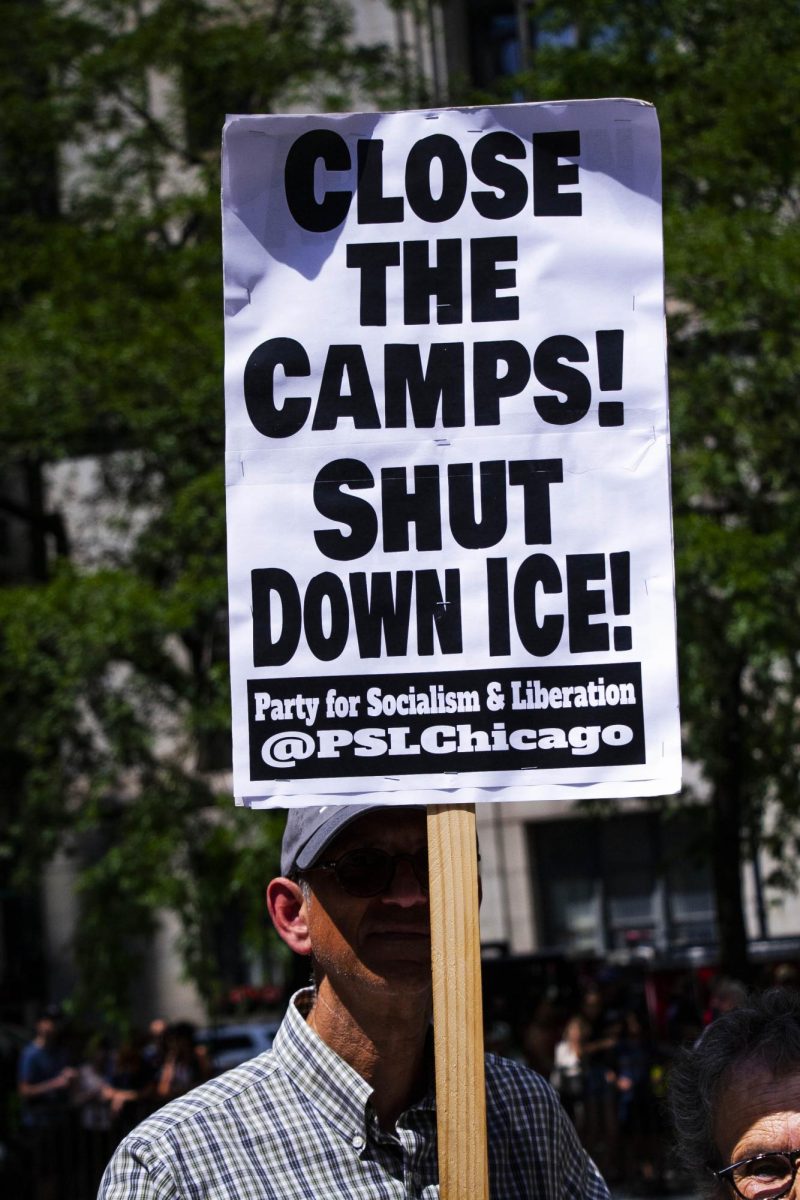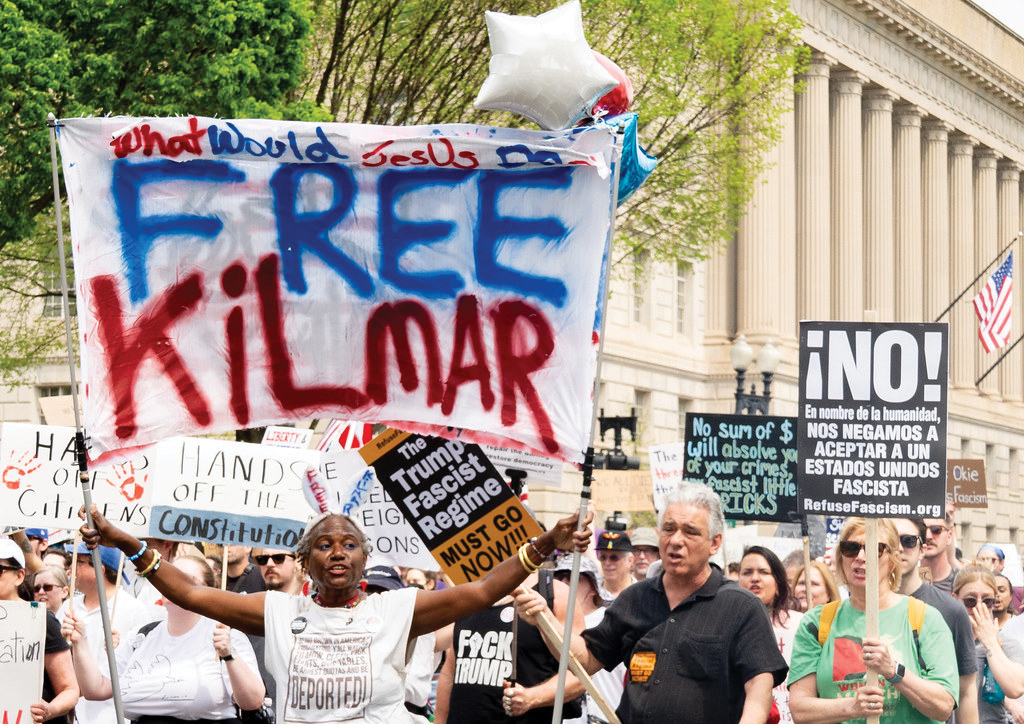Hannah Shea / Staff Photographer
Marisol Jiménez, the 2017 Latinx Heritage Month Keynote Speaker smiles as she tells a story from her childhood on September 20th, 2017. She spoke about her life experiences and related them to what it means to be a Latinx.
Kennysha Woods | Correspondent
On September 20, Multicultural Student Affairs (MSA) at NC State continued their celebration of Latinx Heritage Month with a keynote speech from Marisol Jimenez, founder of Tepeyac Consulting and social justice advocate, held in the Coastal Ballroom of Talley Student Union.
Her presentation, titled, “Ni de Aquí/Ni de Allá: Finding Roots in Community, Ancestors, and Activism,” focused on the importance of knowing your ancestry, cultural history and spirituality, and how this knowledge will aid in maintaining a cultural community and legacy.
Natalia Blount, the chapter president of Epsilon Nu of Lambda Theta Alpha Latin Sorority, Inc., prefaced the presentation with general and historical information about Latinx Heritage Month.
According to Blount, the month was originally named “Hispanic Heritage Month” before it changed in 2017, “in order to capture, celebrate and be inclusive of the rich history that exists in the latinx communities worldwide.” Since 2001, multicultural services at NC State have partnered with organizations like Blount’s to celebrate this month.
Most of the attendees at the presentation were NC State students.
Some students, like Joselyn Villasenor, a third-year in fashion and textile management, had come to learn about the latinx community.
“I’m always interested in learning what people in the latinx community are doing and what ways we can make a difference and support the community.” Villasenor said.
Some students attended out of curiosity.
“I’m very interested in what she has to say, what message she has to instill in this crowd,” said Miguel Ortiz-Cruz, a second-year studying technology, engineering, and design education.
Jimenez said, “The overall message I’m hoping to convey today is that I feel like what we are in right now is a prophetic moment and that this is a spiritual battle, whatever that looks like for anybody.”
Jimenez started her talk by inviting the audience to call people into the space. “If you feel moved, just call out names of people you’re thinking about. Ancestors that you want to acknowledge and honor in the room tonight.” After some audience members called out names, she started her presentation with the story of her family.
Spirituality played a major role in Jimenez’s life, serving as a safe place from her struggles with cultural identity. Growing up in Humboldt Park, Chicago, Jimenez couldn’t find acceptance anywhere because of her Mexican, Irish and Puerto Rican heritage.
Jimenez did not feel accepted at home, where her mother’s parents tried to get Jimenez’s undocumented Mexican father deported. By age 2, her father was gone. Her mother’s family would talk down to her because of her Mexican heritage.
“That’s what I was born into. I was born into this family that did not accept my father and did not accept me,” Jimenez said.
She wasn’t accepted by peers at school either.
“I would get instructions from other little kids about how I could be more accepted so that they would play with me, and the instructions were things like, ‘Get a tan. Gain some weight. Get a perm.’ All of those things were the way for me to be more latina,” Jimenez said.
A visit to the Mexican border changed her perspective. This visit occurred in the 90s, during the North American Free Trade Agreement (NAFTA) administration. Seeing the militarization of the border and the wall being constructed, Jimenez decided to come to North Carolina to study law in 2003.
“I just had this idea that if we could change the law, we could change everything,” Jimenez said. She participated in social justice groups and pushed issues such as immigration policy reform.
But once again, the people around her expressed disdain for her heritage. As Jimenez pushed her legislative agendas, she found herself at odds with employees of the General Assembly, which she described as “mostly older white men” who “made sure that [she] knew who had power and who didn’t.”
She recalled one of her first lobby visits in which she was blocked into an office and berated: “And the legislature turns to me and says, ‘You must be some kind of an effing idiot, if you think we’re going to let you pass in-state tuition in North Carolina.’” He then threw her legislative agenda in the garbage. As they berated her, she never spoke out of turn.
“That general assembly and that experience taught me more than anything the dangers of turning to the system of oppression–a system that was built by and for white, rich, Christian, straight men–and asking for assistance, and being surprised when what they give back was more oppression,” Jimenez said.
With the support of her community of social activists, she was never deterred. Jimenez commended her community for supporting and challenging her, and she was the head of NC’s Latino immigrant justice movement until an important question made her reconsider that position.
‘‘Someone turned to me and said, ‘Marisol, don’t you think it’s strange that a half-white, English-dominant, U.S. citizen yankee is the leader of North Carolina’s Latino Immigrant Justice Movement?’”
She stepped down from the position, and this decision led her to her next move: “Bringing a complicated conversation about power and privilege and oppression back to our movement,” Jimenez said. “Coming back into our organizations, our nonprofits, our movements and saying to each other, ‘How are we replicating the structure of power, privilege and oppression in our own movements?’”
In doing such work, Jimenez “healed,” turned to spirituality and rediscovered her ritual and sacred practice. “I started having this feeling in my bones that something was not right, that something was about to happen.” She recalled natural disasters: Hurricane Katrina, Hurricane Sandy, the tsunami in India. She started watching the sky. She said she felt something was wrong, yet everyone around her didn’t understand.
That feeling went away when Jimenez was able to “surrender to mortality.”
“There was a collective mortality that we were facing, and that I was feeling it, and that I was okay.” Jiminez found comfort in that feeling. “[it] allowed me to breathe again. It allowed me to be brave again.”
She said that her path of work has always helped healed her and led her to spiritual practice. “And that spiritual practice has allowed me to be a better human and that I have to think that it is in our culture that the medicine exists. There are the figures. There are the resources. There are the prayers. There are the memories, and all we have to do is sit with them and they will come to us.”
Jimenez concluded her talk with this thought: “We have ancestral memory. This is an ancestral struggle, and it is only by staying connected to our people, to our cultures, and to our ancestral practices that we are going to get free.”
The talk was followed by a short Q&A session (Questions and responses at the bottom of this article) during which she addressed the political aspects of activism in response to a question for recommended actions for latinx student unions.
Jimenez said, “I would love to see our student union building a real analysis around race and power, building bridges and relationships with black organizations on campus, and start really connecting the dots around how this country’s economy was built on genocide and slavery and undocumented labor…. What it means for the immigrant community to challenge these narratives and start going after state-sanctioned violence, and seeing that the same police state that is attacking black communities is setting up driver license checkpoints.”
After the event, students said they felt determined and connected to something larger for having attended.
Itzel Rojas, a first-year studying education, said, “I feel in general, it was a good push to show individuals what to do in order for the community to prosper as a whole and influence future generations in our culture and our part in society.”
Ortiz-Cruz emphasized that multicultural events about connection to ancestry and cultural history are important for NC State to provide and offer to their students: “We can’t ever forget where we’re from. Every day, after every experience, you have to remember where you’re from and how you’re here. You can’t forget it.”
Short Q&A session with Jimenez.
One attendee asked about strategies for ancestral connection.
There are two things for me. One is that there is our collective ancestry. There is a lot about us going back and relearning our history. Another history that has been offered to us in a traditional academic school environment–the one we have to dig up and find, the one that is buried all over Latin America, under churches–what is that history? How do we go back so that we understand how colonization and imperialism built where we are today? But we can not really understand where we are today if we don’t go back and learn that history–a radical history.
The second is reflecting back on our own families. Any kind of activism, any kind of leadership, any kind of anything in a community is that the idea that we can’t compartmentalize ourselves and only bring one part of ourselves–like “professional Marisol”–to the table is a lie. You don’t just bring one part of yourself, you bring all of it: the light, the power, the beauty, the mess, the ugly, the broken. All of that comes.
And so for us to be able to hold each other across this work when it gets tough–when they’re trying to push one person off the boat and say, “Well you can stay, but that person can’t,” or ‘We’re going to ask you to work in your trauma. We’re going to trigger you and make you scared. We’re going to make you make decisions out of your fear, out of an idea of scarcity.” It is in those places where our shadow sides are most likely to come out, so we really to understand our own work to do, and to understand our work to do is ancestral.
What I’m dealing with goes back to my mother. It goes back to my grandmothers. It goes back to my grandfathers. My great-grandfathers. There are things that I’m dealing with that are not just mine. And so for me to heal myself means that I have to heal my ancestral line and it also means that I’m hoping to heal the line going forward. Doing that work of reflecting–of facing your shadows–and getting clear on the history are some of the ways that at least I try to work with.
What are your practices? How do you heal? How do you bring your roots and your ancestry into the work that you do?
What would you advise Latinx Student Unions in the battles occurring right now?
One of the things that is really critical for our Latinx community to work on is to start unpacking our dynamics of how we internalized power, privilege and oppression. For example, race. Within our community, here are these racial lines, lines around legal statutes and citizenship. I think that for us to be able to survive these battles and not pin ourselves into a corner, we need to be doing real intersectional work.
The latinx community represents dozens of nation-states and the entire racial diaspora, and we have our own histories around race and power and privilege and oppression that we bring back into this country. It is not a mistake that the majority of our leaders in the latino justice movement are lighter-skinned latinos. That is not just coincidence.
I think it’s amazing that we are saying latinx. That is intersectional, and it’s really wonderful that we’re doing that. That is the kind of work we have to do. Because they’re going to what they’ve always done: the comprehensive immigration reform, or the DREAMact, or in-state tuition. They’re going to start trying to split us up. There’s all these ways that they’ve tried to force us into taking sides and leaving people behind. And we can’t do that. We have to resist.
I would love to see our student union building a real analysis around race and power, building bridges and relationships with black organizations on campus, and start really connecting the dots around how this country’s economy was built on genocide and slavery and undocumented labor. And continues to be. What is means for the immigrant community to challenge these narratives and start going after state-sanctioned violence, and seeing that the same police state that is attacking black communities is setting up driver license checkpoints.”
It’s not enough to just get a greencard and DACA and then we’re good, because it is not okay. It is not good. Only some of our community will be protected by that. Really doing that challenging work of building intersections, building those conversations, and the holding the line together–and not allowing them to get us to sell out portions of our community for one thing that we think is going to save us, but it’s will not.






